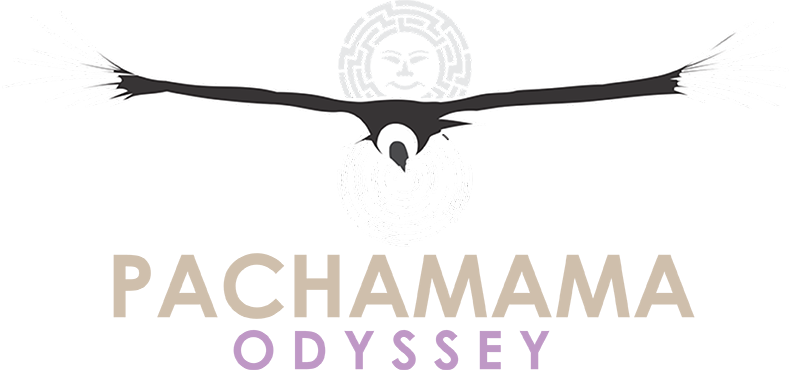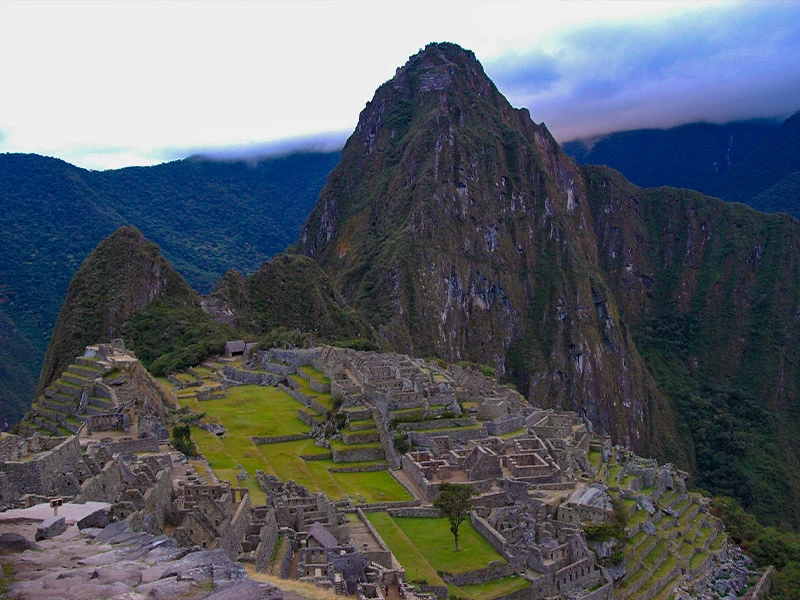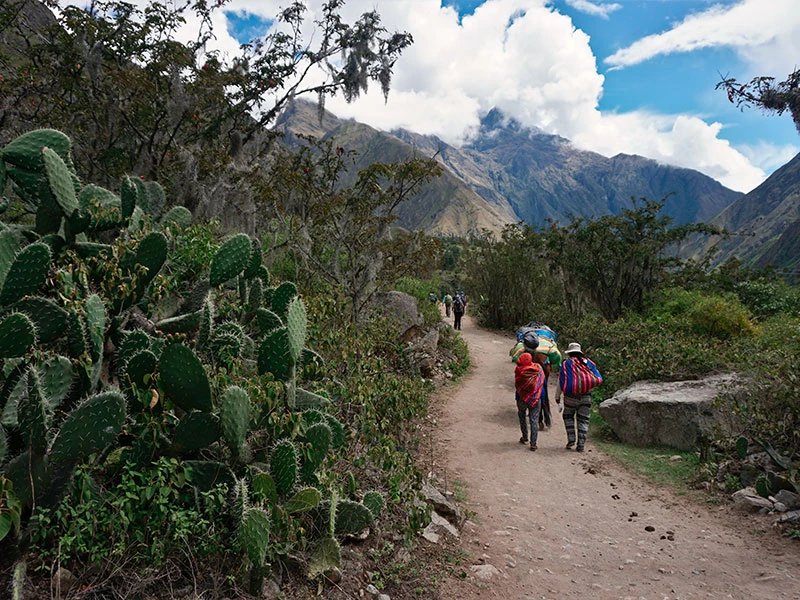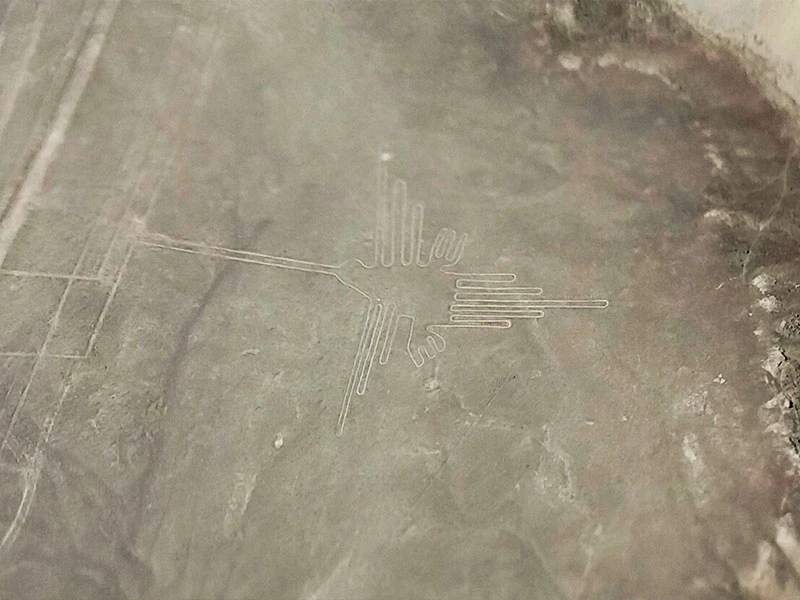Pachamama Odyssey – Peru Adventure
- Home
- Find Your Trip
- MACHUPICCHU
- 8 Day – Machupicchu, Service and Laketiticaca
- 4 Day – Cusco and Machupicchu
- 6 Day – Machupicchu and Rainbow Mountain
- 8 Day – Cusco, Machupicchu and Nazca
- 9 Day – New Hike, Rafting and Machupicchu
- 6 Day – Machupicchu and Lake Titicaca
- 1 Day – Ollantaytambo to Machupicchu
- 11 Day – Machupicchu, Lake titicaca and Galapagos
- 10 Day – Machupicchu, Lake Titicaca and Northern Peru
- 8 Day – Kuelap and Machupicchu
- 12 Day – Cusco, Sacred Valley and Machupicchu and Rainbow Mountain
- 6 Day – Cusco and Machupicchu
- 8 Day – Service and Machupicchu
- 5 Day – Salkantay trek to Machupicchu
- 10 Day – Service, Machupicchu, Titicaca and Caral
- 14 Day – Nazca, kuelap, Caral and Machupicchu
- 12 Day – Cusco, Sacred Valley, Machupicchu and Rainbow Mountain
- 14 Day – Machupicchu and Multiple Cities
- 8 Day – Machupicchu Spiritual
- 7 Day – Clasic Inca Trail to Machupicchu
- 7 Day – Lima, Sacred Valley and Machupicchu
- PERU
- 19 Day – All Peru and Amazon
- 8 Day Arequipa – Colca Canyon – Volcanoes Valey
- 8 Day – Caral – Kuelap – Northern Peru
- 1 Day – Food and City Tour
- 8 Day – Kuelap, North Peru and Caral
- 5 Day – Inca Trail and Andean Mountains
- 4 Day – Caral and Nazca
- 8 Day – Caral, Nazca and KM104
- 1 Day – Lima City and Dinner
- 8 Day Lima, Cusco, Community Service and Machu Picchu
- 2 Day – Service and Native Comunity Tastayoc and Tanccac
- 10 Day – Lima, Kuelap and Tiwanaku
- 8 Day – Best of Peru
- 1 Day – Lima City Tour
- 1 Day – Sacred Valley Fishing
- 10 Day – Peru and Ceremonies
- 3 Day – Pisaq, Waterfalls and Inca Quarry
- 10 Day – Lima, Cusco and Lake Titicaca
- 2 Day – Sacred Valley
- 1 Day – Sacred Valley Rafting
- 1 Day – Waterfall Mandor Day Hike
- 10 Day – Retreat and Best of Peru
- 1 Day – Rupac
- 1 Day – Waterfall Day Hike
- 1 Day – Cachicata Inca Quarry Day Hike
- 1 Day – Lima, Pachacamac and Casa Hacienda Los Ficus
- 1 Day – Caral
- MACHUPICCHU
- CHILE
- ECUADOR
- BOLIVIA
- COLOMBIA
- About Us
- Philantrophy
- Contact us
- Library-Books-Videos
- Home
- Find Your Trip
- MACHUPICCHU
- 8 Day – Machupicchu, Service and Laketiticaca
- 4 Day – Cusco and Machupicchu
- 6 Day – Machupicchu and Rainbow Mountain
- 8 Day – Cusco, Machupicchu and Nazca
- 9 Day – New Hike, Rafting and Machupicchu
- 6 Day – Machupicchu and Lake Titicaca
- 1 Day – Ollantaytambo to Machupicchu
- 11 Day – Machupicchu, Lake titicaca and Galapagos
- 10 Day – Machupicchu, Lake Titicaca and Northern Peru
- 8 Day – Kuelap and Machupicchu
- 12 Day – Cusco, Sacred Valley and Machupicchu and Rainbow Mountain
- 6 Day – Cusco and Machupicchu
- 8 Day – Service and Machupicchu
- 5 Day – Salkantay trek to Machupicchu
- 10 Day – Service, Machupicchu, Titicaca and Caral
- 14 Day – Nazca, kuelap, Caral and Machupicchu
- 12 Day – Cusco, Sacred Valley, Machupicchu and Rainbow Mountain
- 14 Day – Machupicchu and Multiple Cities
- 8 Day – Machupicchu Spiritual
- 7 Day – Clasic Inca Trail to Machupicchu
- 7 Day – Lima, Sacred Valley and Machupicchu
- PERU
- 19 Day – All Peru and Amazon
- 8 Day Arequipa – Colca Canyon – Volcanoes Valey
- 8 Day – Caral – Kuelap – Northern Peru
- 1 Day – Food and City Tour
- 8 Day – Kuelap, North Peru and Caral
- 5 Day – Inca Trail and Andean Mountains
- 4 Day – Caral and Nazca
- 8 Day – Caral, Nazca and KM104
- 1 Day – Lima City and Dinner
- 8 Day Lima, Cusco, Community Service and Machu Picchu
- 2 Day – Service and Native Comunity Tastayoc and Tanccac
- 10 Day – Lima, Kuelap and Tiwanaku
- 8 Day – Best of Peru
- 1 Day – Lima City Tour
- 1 Day – Sacred Valley Fishing
- 10 Day – Peru and Ceremonies
- 3 Day – Pisaq, Waterfalls and Inca Quarry
- 10 Day – Lima, Cusco and Lake Titicaca
- 2 Day – Sacred Valley
- 1 Day – Sacred Valley Rafting
- 1 Day – Waterfall Mandor Day Hike
- 10 Day – Retreat and Best of Peru
- 1 Day – Rupac
- 1 Day – Waterfall Day Hike
- 1 Day – Cachicata Inca Quarry Day Hike
- 1 Day – Lima, Pachacamac and Casa Hacienda Los Ficus
- 1 Day – Caral
- MACHUPICCHU
- CHILE
- ECUADOR
- BOLIVIA
- COLOMBIA
- About Us
- Philantrophy
- Contact us
- Library-Books-Videos
Peru
Peru (in Quechua and Aymara: Piruw), officially the Republic of Peru,2 is a sovereign country located in western South America. It has a republican, democratic, unitary, representative, decentralized and presidential form of government. Its capital is the city of Lima.
The Pacific Ocean borders its coast and the country is bordered by Ecuador and Colombia to the north, Brazil to the east, and Bolivia and Chile to the southeast. Its territory is composed of diverse landscapes: valleys, plateaus and the high peaks of the Andes spread west to the desert coast, from the north to the southeast of the country and east to the Amazon. It is one of the most biologically diverse and mineral resource-rich countries in the world.
Ancient Peru was home to successive civilizations during the ancient and medieval periods, and has one of the longest civilizational histories of any country, whose heritage dates back to the 10th millennium B.C. Notable pre-colonial cultures and civilizations include the Caral-Supe civilization in 3200 B.C.16 (the oldest civilization in the world). C 16 (the oldest civilization in the Americas and considered one of the cradles of civilization) the Nazca culture, the Chavin culture, the Wari, Tiahuanaco empires, the Kingdom of Cusco, and the Inca Empire which was the last autochthonous or indigenous state, which dominated much of western South America by the 15th century.
The following century saw the Conquest of Peru, after which the territory was configured as a viceroyalty of the Spanish Empire articulated around the exploitation of silver and gold with forced labor of indigenous people and African slaves in mines and haciendas. In 1551, the Spanish crown officially founded the Universidad Nacional Mayor de San Marcos in Lima, the first and oldest university in the New World.17 The Bourbon reforms of the eighteenth century sparked various uprisings against colonial authority, whose greatest exponent was the rebellion of Tupac Amaru II.
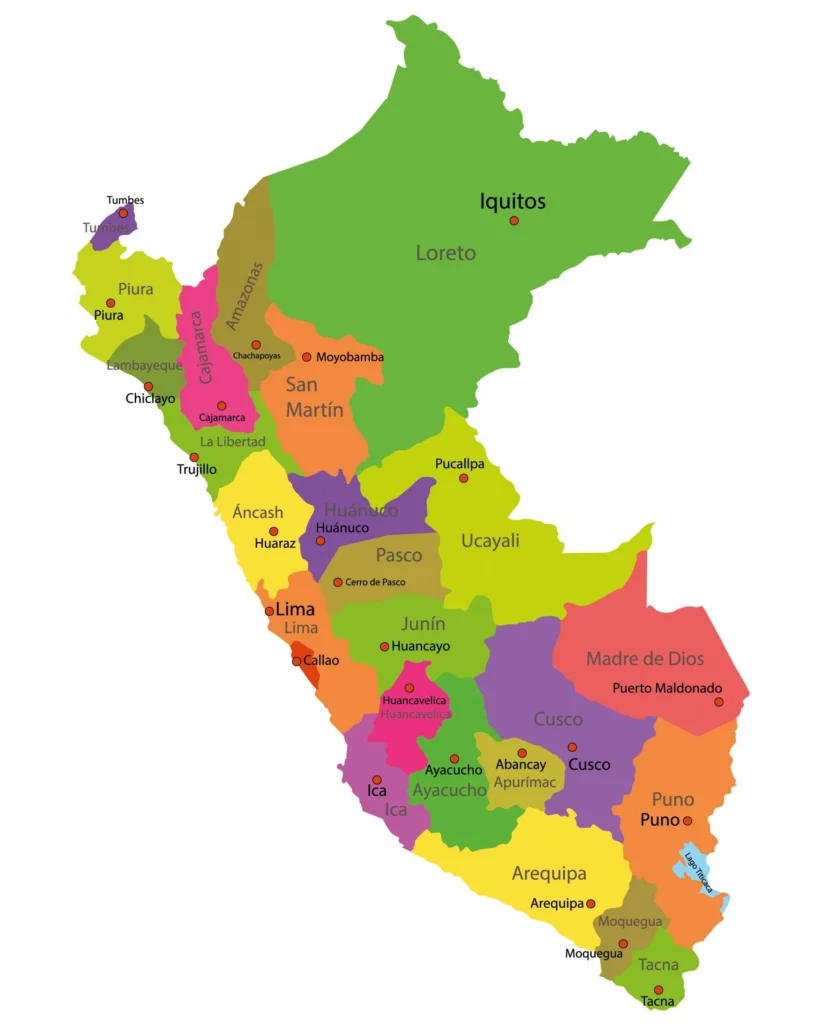
Recommended Trips
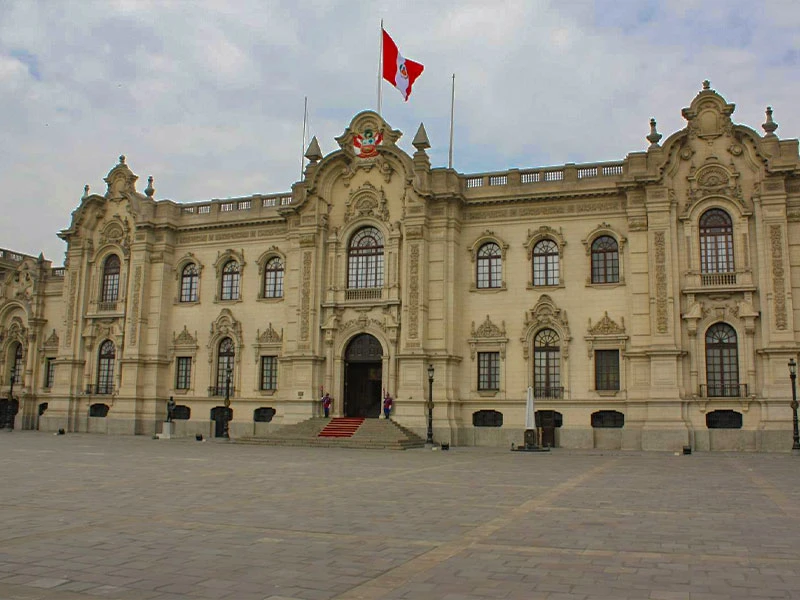
Lima City Tour
Lima is the capital of Peru located on the arid Pacific coast of the country. Although its colonial center is preserved, it is a sprawling metropolis and one of the largest cities in South America. The Larco Museum houses a collection of pre-Columbian art and the National Museum traces the history of Peru’s ancient civilizations. The Plaza de Armas and the 16th century cathedral are the core of Lima’s ancient center.
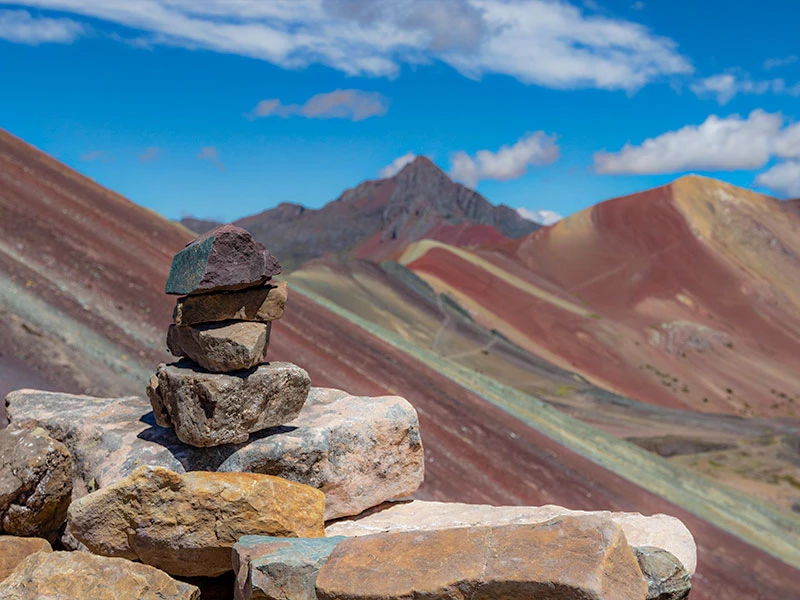
Cusco to Rainbow Mountain
Vinicunca or Winikunka, also called mountain of seven colors, rainbow mountain or mountain of colors (the villagers call it Cerro Colorado), is a mountain of Peru with an altitude of 5,200 meters above sea level. It is located on the road to Ausangate, in the Andes of Peru, Cusco Region, between the districts of Cusipata, province of Quispicanchi, and Pitumarca, province of Canchis. In the mid-2010s, a process of mass tourism began, attracted by its series of stripes of various colors, due to its mineralogical composition present on the slopes and summits.
